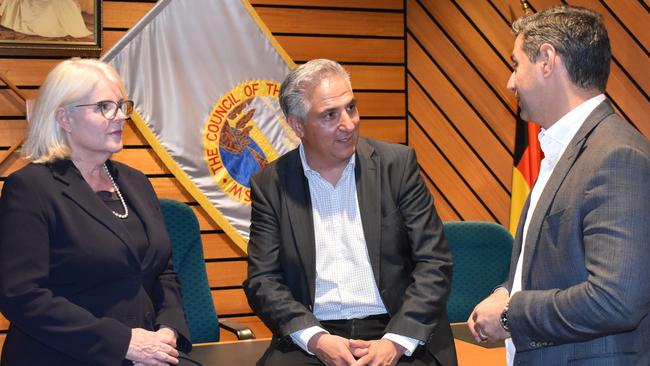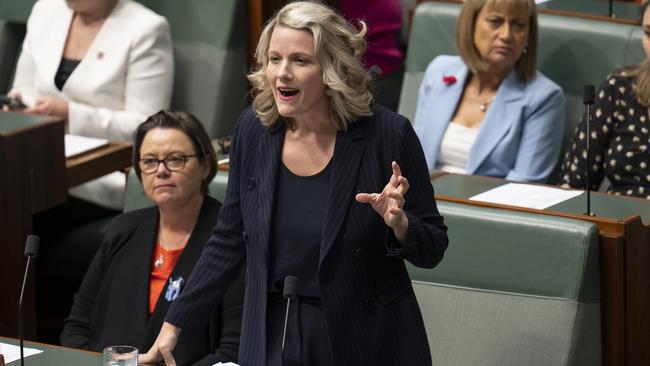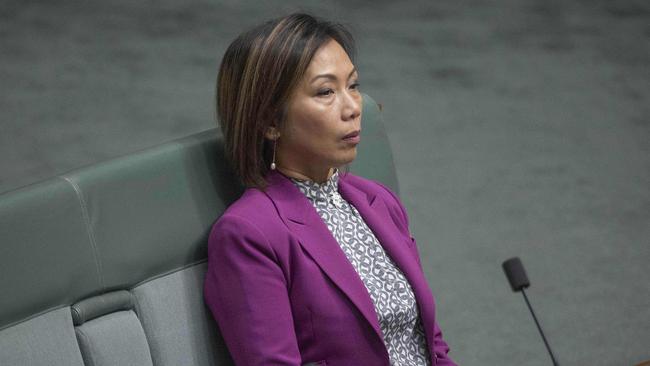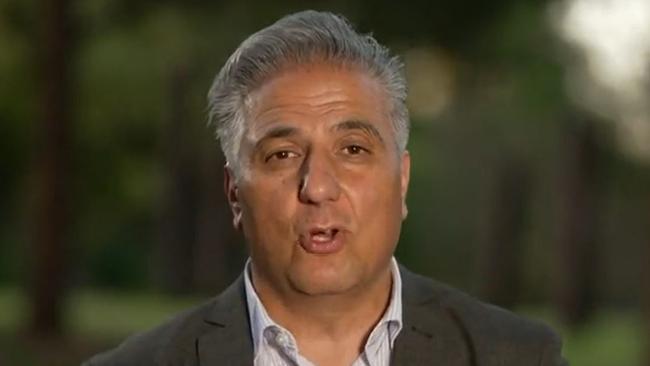Fairfield Mayor responds to Clare O’Neil’s promise to visit Western Sydney over IS bride fear
Fairfield Mayor Frank Carbone has responded to the Home Affairs Minister’s promise to visit Western Sydney to hear concerns about the repatriation of IS family members from Syria.
National
Don't miss out on the headlines from National. Followed categories will be added to My News.
After sustained pressure from community leaders Home Affairs Minister Clare O’Neil will visit Western Sydney to hear concerns about the repatriation of IS family members from Syria.
It can be revealed Ms O’Neil will travel to the electorate of McMahon — which includes the suburbs of Fairfield, Merrylands and Wetherill Park — on Friday to meet with local mayors and community groups from the surrounding areas to discuss the resettlement of women and children from a refugee camp for IS family members.
Ms O’Neil will also extend an invite to independent Fowler MP Dai Le, who has repeatedly called on the federal government to respect the fears of local residents who came to Australia to escape the IS regime.
Fairfield Mayor Frank Carbone welcomed the news, saying he was “pleased” with the decision but reinforced that it would not be an opportunity to execute a “glossy PR” stunt.
“Let me tell you it won't be a glossy bit of PR because we will be making it clear we don’t want them (ISIS brides) resettled in Western Sydney,” he told Today on Thursday morning.

“The government tried to dump Kristina Keneally a few months back and we didn’t accept her and we are not going to accept ISIS brides.”
Coalition MPs have raised the lack of consultation with Western Sydney stakeholders as a matter of public importance to bring on an immediate debate in the House of Representatives on Wednesday.

Opposition home affairs spokeswoman Karen Andrews condemned the federal government for not adequately engaging with the community leaders.
“One thing that was made abundantly clear to me by (local mayors), on behalf of their community, was the disappointment that they felt in the way that the government had treated them by largely pushing aside their concerns (and) refusing to make contact with them,” Ms Andrews said.
Ms O’Neil used her 15-minute speech in the debate to outline the national security reasoning behind the resettlements and confirmed she was happy to meet with local communities.
“Senior counter-terrorism experts were in Western Sydney about a week ago, and with a large group of community leaders we have more consultation planned,” she said.

Ms O’Neil said the decision to repatriate the wives and children of IS fighters was informed by “individual assessments,” which followed “very detailed work by national security agencies”.
“My concern is for the national security of Australians who are in Australia full stop, that is the prism through which I see this,” she said.
“As Australian citizens, these women and children will have an enduring right to re-enter our country — we have to manage this issue.”
She said it was in the nation’s interest for the children to grow up supported in Australia, rather than in a squalid refugee camp where they had little access to healthcare or school, and were subjected to radical ideologies that told them to “hate your own country”.

Ms Le participated in the debate in parliament, revealing about 10 per cent of her electorate had escaped war-torn Iraq, Syria and Lebanon, and in particularly escaped the IS regime.
“We cannot judge their genuine fears, and we cannot properly relate to what it was like to have lived under ISIS,” she said.
Ms Le said the government would not be able to understand the “immense impact” the decision to repatriate the women and children had on her community if they did not travel to meet with people face-to-face.
“I cannot stress enough the importance of dialogue and consultation with a community that’s often forgotten by successive governments,” she said.




